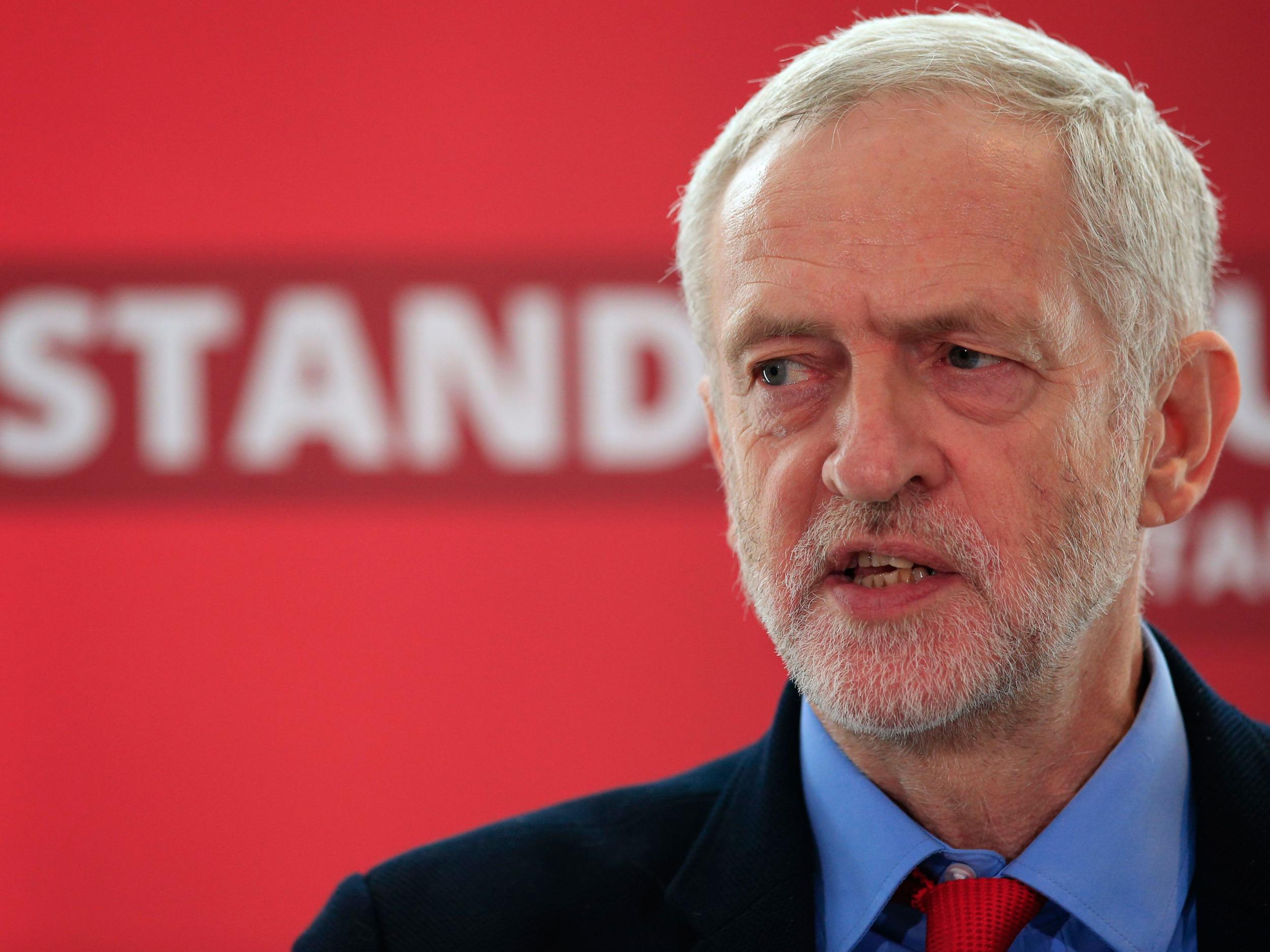As rail fares rise again, Jeremy Corbyn's plan to renationalise our railways makes economic sense
No-one wants to turn the clock back to the old days of under-funded and unloved British Rail, but there is another way


Your support helps us to tell the story
From reproductive rights to climate change to Big Tech, The Independent is on the ground when the story is developing. Whether it's investigating the financials of Elon Musk's pro-Trump PAC or producing our latest documentary, 'The A Word', which shines a light on the American women fighting for reproductive rights, we know how important it is to parse out the facts from the messaging.
At such a critical moment in US history, we need reporters on the ground. Your donation allows us to keep sending journalists to speak to both sides of the story.
The Independent is trusted by Americans across the entire political spectrum. And unlike many other quality news outlets, we choose not to lock Americans out of our reporting and analysis with paywalls. We believe quality journalism should be available to everyone, paid for by those who can afford it.
Your support makes all the difference.This week's inflation-busting fares increases show once again that our privatised rail system is failing passengers. Rail fares have risen by 25 per cent in the last six years alone, but 80 per cent of households have seen either flat or falling incomes since the 2008 financial crisis. Yet research has shown that the costs to the public of running the railways have more than doubled, in real terms, since privatisation – from £2.4bn in the mid 1990s to £5.4bn by the end of the 2000s.
Millions of us rely on the railways to get into work every morning, but alongside the continual ratchet upwards in fares, too many privatised rail companies have failed to deliver the service passengers demand. Southern Rail, in recent months, has been a particular disgrace, with both passengers and workers suffering at the hands of a management that has veered somewhere between incompetence and callousness in its treatment of both.
It's no surprise that the call to renationalise the railways, as pledged by Jeremy Corbyn, remains popular with the electorate. But no-one wants to turn the clock back to the old days of under-funded and unloved British Rail.
Bringing the railways back in house as the franchises expire is a cost-effective means to take our transport system out of the hands of the privateers and back under proper public control. And it's effective: when the East Coast Main Line was renationalised in 2009, following the failure of the franchising process, it rapidly established a reputation as the best of our rail service operators, with the lowest fare rises and highest passenger satisfaction of any rail service in the country. It's baffling that the Tories didn't take the opportunity to build on this success, instead pushing East Coast back out to private operator Virgin.
The case for nationalisation is good economics, too. TUC research has showed that the costs saved from bringing expiring franchises from 2016 to 2020 would save £604m a year, enough to lower regulated fares by up to 10 per cent. We know reliable, affordable transport is essential to delivering productivity growth. Trimming the fat of privatisation can unlock funds to deliver cheaper fares for passengers – and backed up with Jeremy's commitment to invest in transport infrastructure like the north of England's proposed HS3 line, will leave us with a railway network fit for the 21st century.
But it's not just railways. Britain's buses are the most frequently used form of public transport, with 4.65bn journeys made last year, up 15 per cent in a decade. Both younger and older people tend to be more likely to use buses, with 40 per cent of people over the age of 60 using the bus at least once a week. For rural communities, a regular bus service provides an essential transport link. But the Conservatives have cut the grant for bus services by 20 per cent, and, since deregulation in the 1980s, commercial bus providers have no incentives to provide those services, often to more isolated communities that are socially vital but commercially unprofitable. Bus services have been deteriorating in many local communities but the combination of privatisation and funding cuts means the decline is likely to worsen.
There is a simple solution. Switchign the rest of the country to a London-style franchise model has been estimated by independent analysts Transport for Quality of Life to release £340m a year for the benefit of the bus network. That is money freed up that could go directly into improving and extending the existing network, and making sure drivers have decent terms and conditions at work. That's why Jeremy Corbyn has called for all local councils to have franchising powers.
Even bigger gains would be made if local councils chose to run local bus routes through municipal operators – but the Conservatives are currently steering the Bus Services Bill through Parliament, and have included a clause specifically to stop local councils from doing this in England. All local councils should be able to have democratic and public control over their local bus routes. We can overhaul our bus and train network and move towards a genuinely integrated, high-quality nationwide public transport system. We need this is we are going to enable greater numbers of people to easily use public transport as part of reducing car journeys for the future of our environment.
Andy McDonald is Shadow Transport Secretary and Labour MP for Middlesbrough
Join our commenting forum
Join thought-provoking conversations, follow other Independent readers and see their replies
Comments